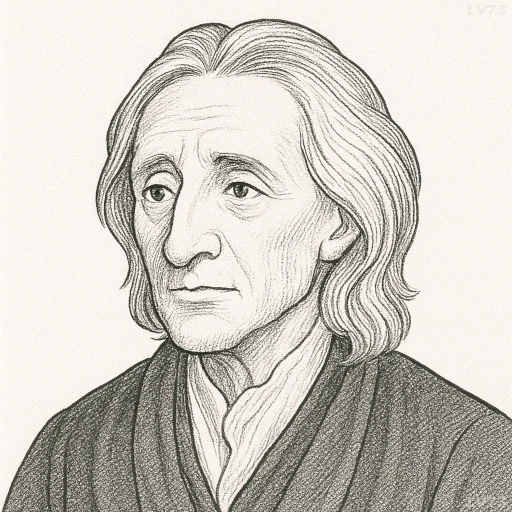“There is frequently more to be learned from the unexpected questions of a child than the discourses of men.”

- August 29, 1632 – October 28, 1704
- Born in England (UK)
- Philosopher and political thinker
table of contents
Quote
“There is frequently more to be learned from the unexpected questions of a child than the discourses of men.”
Explanation
In this quote, John Locke highlights the value of curiosity and innocence in understanding the world. Children, with their unfiltered perspectives and natural tendency to ask simple yet profound questions, often see the world in ways that adults may overlook. Locke suggests that the unanticipated questions posed by children can be more enlightening than the complex discourses of adults, who may be constrained by established beliefs, biases, or assumptions. This reflects Locke’s broader belief in the power of inquiry and open-mindedness, as children’s questions can challenge preconceived notions and inspire new ways of thinking.
Locke’s views were influenced by the intellectual climate of the Enlightenment, which emphasized the importance of reason, education, and individual inquiry. During this time, the concept of empiricism—the idea that knowledge comes primarily from sensory experience—was gaining prominence. Locke himself argued that knowledge is not innate but acquired through experience and observation. The insight from a child’s question, in this sense, could be seen as a fresh perspective that prompts adults to rethink assumptions and reconsider the foundations of their knowledge.
In modern times, Locke’s observation still holds value, particularly in educational and psychological contexts. The curiosity of children drives much of scientific discovery and innovation; their willingness to ask basic questions can lead to profound breakthroughs. For example, many inventions have originated from a child’s simple query, such as asking, “Why can’t we fly like birds?” which inspired advancements in aviation. In today’s world, where information is often over-complicated or clouded by prejudices and biases, Locke’s insight reminds us to value the unconventional thinking that children bring, as it can sometimes offer the most genuine path to understanding.
Would you like to share your impressions or related stories about this quote in the comments section?



